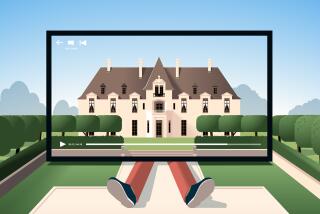The New Rich Work Hard <ka-20>to Be More Like You and Me</ka-20>
Something very strange is going on with rich people in America. I was recently at a conference of high-tech entrepreneurs. Most of these guys are worth millions, and some of them have net worths that compare favorably with the gross national product of Third World countries. And yet most of these people didn’t look rich and they didn’t act rich.
Many of them wore faded jeans and crumpled shirts. One dot-com multimillionaire wore a baseball cap facing backward. Looking at him, I thought of Bill Gates in his oversized sweater and Jeff Bezos of Amazon.com, who shows a distinct preference for alligator shirts. These are people who might drive Lexuses or Porsches in Menlo Park, but they wouldn’t be caught dead in Rolls Royces. Some of them, like investment tycoon Warren Buffet, enjoy boasting about their modest houses and their old cars.
What a strange country where everybody wants to be middle class. For a long time, we have known that the poor want to move up and enjoy the benefits of a middle-class life. That’s understandable. But now, apparently, even the rich and the super-rich aspire to be middle class.
What’s going on here? In the past, business people were not the least bit embarrassed about making money. Moreover, once they got it, they were eager to display it. Conspicuous consumption historically has defined the behavior of the affluent. In his classic work “The Theory of the Leisure Class,” Thorstein Veblen noted that the distinguishing characteristics of the wealthy were idleness and waste.
But not now. Leisure is almost a dirty word in today’s tech culture; the prevailing ethic is work, work, work. This is even more unusual when you consider that many of these guys don’t have to work another day in their lives. Moreover, unlike Veblen’s aristocrats, today’s affluent class even in their indulgences emphasize the bourgeois concerns for health, longevity and utility.
Some people, like economist Robert Frank, author of “Luxury Fever,” dismiss the middle-class image of the new rich as rank hypocrisy. “They’re trying to assure the rest of us that they haven’t seceded from the population,” Frank says. In this view, the rich are simply pretending to be middle-class to avoid that most powerful of hostile sentiments, envy. After all, we know that behind tall gates, many of these Silicon Valley types and Wall Street types and Hollywood types live fabulously well. We’ve read about Gates’ $50 million mansion outside Seattle. Many of today’s super-rich own private planes. One executive who grew up listening to Rod Stewart recently paid $1 million to have Stewart sing at his wedding.
Despite these few examples of extravagance, I think the middle-class style of the new rich is not just a social pose, not mere hypocrisy. Many of these guys grew up middle-class; that’s how they see themselves. They may now be worth “two commas” (as in $1 million) or even “three commas” (as is $1 billion) but they still prefer to hang out with the guys they met in college. They genuinely prefer spare ribs and beer to caviar and champagne. And they want to preserve the bourgeois virtues of self-discipline, hard work and frugality that made them so successful.
Even more important, they want to cultivate these virtues in their offspring. “I don’t want my children to be spoiled rotten,” Michael Dell of Dell Computer told me at a recent conference. Many self-made entrepreneurs have said that they aren’t going to leave the bulk of their fortune to their children; they don’t want to raise a generation of slackers. Rather, as the head of one software company put it, “I want my kids to face the same challenges that I did, so that they too can have the thrill of overcoming life’s obstacles.”
I don’t know how long this ambivalence about wealth will persist in the minds of the new rich. Money does funny things to people. But at least for now, in the minds of its most successful citizens, America remains a classless society.
More to Read
Inside the business of entertainment
The Wide Shot brings you news, analysis and insights on everything from streaming wars to production — and what it all means for the future.
You may occasionally receive promotional content from the Los Angeles Times.










